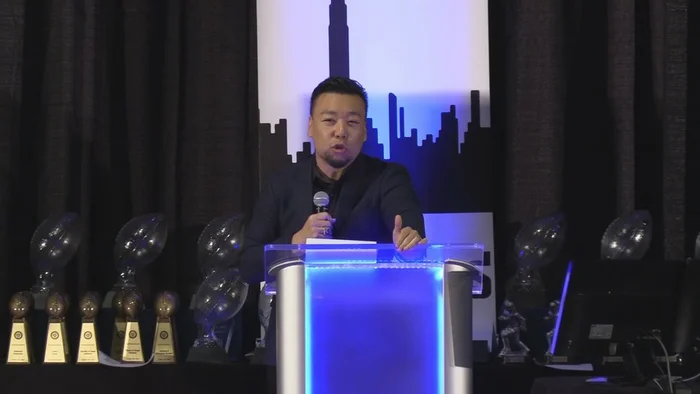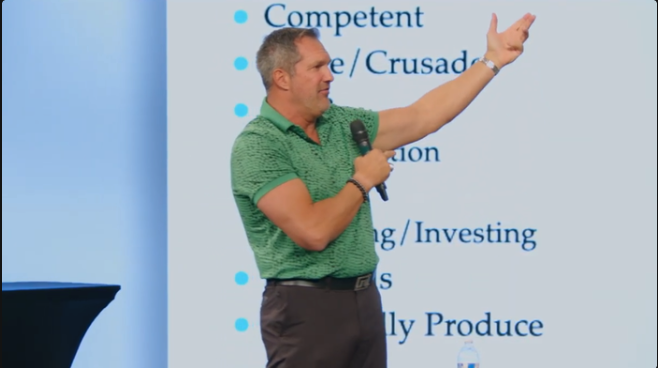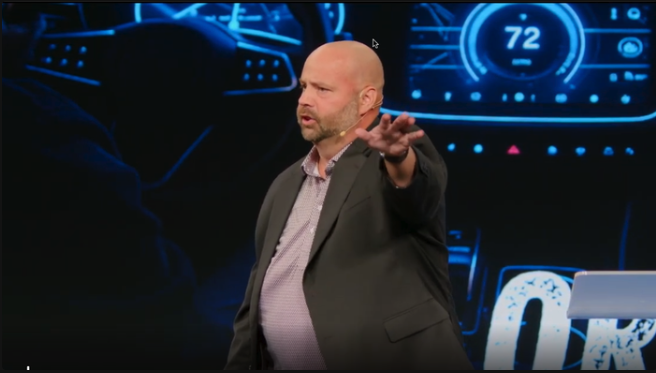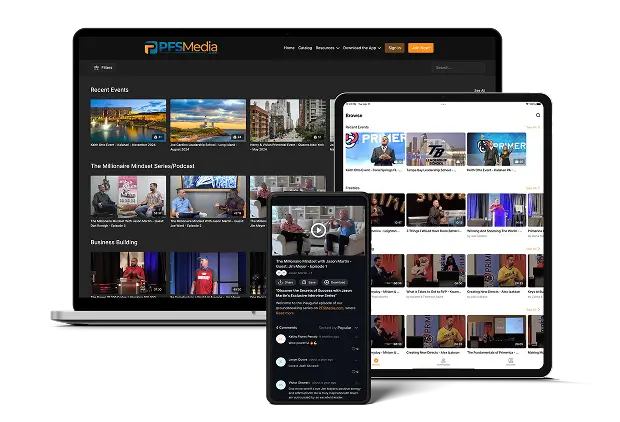Executive TLDR
Your business only grows to the extent that you grow as a leader.
Build master copies—leaders with your DNA who can fully duplicate the system.
Recruit large numbers to reduce frustration and increase stability.
Motivate through crusade and dream—emotion creates long-term commitment.
Lead with communication, tolerance, and relationships built close enough to relate, far enough to lead.
Video Summary
From Skeptic To Builder
In Molding Masters: The Journey Of Shaping Business Leaders, Glen Li reflects on nearly 24 years inside Primerica and the evolution from confused recruit to seasoned leader.
He recalls thinking everyone in the office were “actors” because of their positivity—so different from the negativity of traditional jobs. Eventually, he realized the difference:
Everyone in the room was heading in the same direction.
Momentum creates belief.
You Are In The People Business
Glen emphasizes a hard truth:
Primerica is not a sales business.
It is a people development business.
New reps often recruit aggressively through excitement. But as knowledge increases, so does exposure to problems. If personal growth doesn’t outpace frustration, leaders drift into “just selling” instead of building people.
Your organization will only grow to the level you grow.
The Five Leadership Transfers
Glen outlines five essential elements leaders must transfer to build lasting organizations.
Educate And Become The Master Copy
Leadership starts with education.
He highlights the influence of his mentor, Keith Oto, whose consistency and emotional control modeled maturity.
Glen asks a powerful question:
Who in your base shop can fully run a complete appointment—FNA, securities, recruit, and get referrals—without you?
If the answer is unclear, you lack master copies.
Duplication weakens over distance. Like copying a tape repeatedly, the message fades. Leaders must personally develop deep “DNA” connections with their team.
Motivate Through Crusade And Dream
Motivation is not hype.
Glen shares how seeing his father paying $700 per month for cash value life insurance transformed theory into conviction. That moment sold him out to the crusade.
People stay when they believe:
The mission matters.
The dream is real.
He reinforces the importance of selling both:
50% crusade.
50% dream.
Recruiting locks people in emotionally and structurally.
Recruit Large To Reduce Frustration
Frustration comes when you depend on one or two superstars.
Recruiting wide gives stability.
He references a principle often shared by Joe Cardino:
Every dud knows a stud.
Large numbers reduce emotional swings and protect long-term growth.
Tolerate And Stay Patient
Tolerance is one of the hardest leadership skills.
Not everyone will see things your way.
Not everyone burns with urgency.
Some reps disengage slowly—first missing one-on-ones, then texts, then meetings, until they only show up for licensing renewals.
Still, Glen stresses patience.
You never know who may return stronger—or who they may introduce to you.
Communicate And Build Relationships
Nothing replaces face-to-face connection.
Communication flows in layers:
One-on-one meetings
Personal follow-ups
Text systems and group chats
Office meetings
Commitment can be measured by communication patterns.
Ultimately, leadership requires being:
Close enough to relate.
Far enough to lead.
If you stop communicating with someone, that may be the last time anyone pushes them toward success.
Revamping The Base Shop
Glen observed his base shop blending into the hierarchy. Recognition was happening—but new reps weren’t identifying as base members.
The solution:
Separate base-focused meetings to sharpen skill sets, especially basic invites.
Because in Primerica, you teach:
Pre-K level beginners
All the way to college graduates
In the same room.
Structure matters.
Follow Proven Leadership
Glen credits long-term mentorship from Keith Oto and influence from leaders like Ray and Carol.
When Glen joined, Keith earned $260,000 annually. Today, he earns that approximately every two weeks.
The greatest gift wasn’t just the opportunity—it was being recruited by someone who cared.
Outside of environments like this, few people are financially invested in your success.
Final Reflection
Time moves fast.
Recruits from 20 years ago are now veterans. Policies are reaching maturity. Leaders age—but opportunity does not.
Eyeballs don’t wrinkle.
The mission remains:
Grow yourself.
Recruit relentlessly.
Build master copies.
Protect relationships.
Mold leaders who outgrow you.
That is how masters are shaped.
FAQs
Who is the speaker in this training?
Glen Li.
What company is the training centered around?
Primerica.
Who is Glen Li’s primary mentor mentioned in the talk?
Keith Oto.
What is a master copy?
A fully developed leader who can duplicate the complete system independently.
Why does duplication weaken over time?
Because each generation may drift from original standards without close mentorship.
What sold Glen out to the crusade?
Seeing his father overpay for cash value life insurance for years.
Why is recruiting large numbers important?
It reduces dependency on a few performers and stabilizes production.
What does “every dud knows a stud” mean?
Even underperformers may introduce you to future top leaders.
Why is tolerance critical in leadership?
Because not everyone progresses at the same pace or intensity.
What is the most powerful form of communication?
Face-to-face one-on-one meetings.
Why separate base shop meetings from hierarchy meetings?
To strengthen identity, skill training, and direct development.
What happens when leaders stop growing personally?
Their organizations plateau or shift into pure sales instead of leadership development.
How should motivation be balanced?
Half crusade-driven purpose, half dream-driven lifestyle vision.
Why is relationship-building essential?
Because leadership requires trust, proximity, and emotional investment.
What is the ultimate leadership message?
Grow yourself first—your business will follow.
Glossary
Master Copy
A leader who perfectly models systems, skills, and culture for duplication.
Base Shop
The core team directly developed by a leader before expansion into wider hierarchy.
Hierarchy
The layered organizational structure within Primerica.
Crusade
The mission-driven belief in correcting financial misinformation and helping families.
Duplication
The process of replicating skills, systems, and leadership behavior across generations.
FNA
Financial Needs Analysis—a structured financial review conducted with clients.
Piston Theory
A concept describing rotating production among team members to maintain momentum.
Transcript:
All right.
I’m excited about that. I got two months to learn Spanish, but first off, and I’ll do my thanking at the end, but we just came back from this whole month. It’s crazy because this life, it’s been a dream over the last couple of years, but where else can you go work and have fun at the same time, you know what I mean? I remember when I first started coming to the meetings, people were weird to me because they were all happy, clapping, shaking hands, wearing all different colors. And that was weird to me because where I worked at my job, everybody was pissed off. You guys could relate. But what I realized was everybody was heading a certain direction, right? And there were so many different people.
I used to think that everybody in Keith OTO’s office, my first two weeks were hired to trick me because I go, how come these guys, I’m the only one looking around the room, right? When somebody’s speaking, I had no idea what they were talking about. And I’m looking around the room and everybody’s like, face. I go, these are all actors and actresses, right? And then I realized, I go, I’m not that important where they’re going to pay all these actors and actresses, but I was hoping this worked. Okay, listen, in South America, there’s a species of jellyfish which can revert back to its juvenile form after reaching maturity. So it biologically is immortal.
So that means that it gets old, but then it could transition to young again and get old again and transition young, so it could really live forever if it wanted to. But in a jellyfish, I’m not a biologist, okay? But a jellyfish, when it gets a little bit, like when it’s sad, it changes colors. And it says it gets to a point where it gets old and gets so pissed off at life that it never reverts back to young again. And that’s when it dies. How crazy is it? Actually, I made that crap up.
All right?
Made that crap up. Sounds like that.
Okay.
But I’m going to talk about the five things, because we are in a people business, right or wrong. Okay, it’s actually True. But the second half I made up. But we’re in a people business, and it is the most difficult thing in the world. If we don’t grow as a person.
Does that make sense?
And most people, that’s why most people, if you take a look at, I remember Glenn Williams show the trajectory of somebody’s career span in Primerica when they’re here for a certain. Doesn’t matter what age they are. But when they get to a certain age in Primerica, they tend to get into the sales business versus the people business, right? So it talks about in the beginning when they’re new, right? And let’s say they’re young, right. They are so excited about building a team. They go talk to all their friends and they recruit everybody. Right or wrong. You don’t even know what you’re saying, but yet you could say all the wrong things, but people will join you based on excitement, and it’s great. That’s right.
Right.
I don’t know you, but I’m going to join you. You know what I’m saying? Because you’re excited.
Right?
But then as we start getting more and more experienced in this business, we learn more skills.
Would you agree?
But we also learn a lot of the crap that happens in Primerica.
Okay?
So if we don’t grow, right, see, our business will only grow to the extent in which we grow right or wrong. And we all fall into this once in a while. But there are five things that we do that we have to transfer as we’re dealing with people.
Okay?
Number one is you got to educate them, right? Educate people.
Right?
Educate them along. And Keith Oto is such a master of this because I’ve known Keith for almost 24 years now. October 15, this Sunday is going to be our 24 year anniversary in this business. And it’s crazy, right? It’s crazy. I’m excited, but I’m not excited because I’m like, yo, some of these guys right now, three years in the business, are at a million dollars a year income. And I go, but you know what? If I stayed at a job for 24 years, I’d still be broke. You know what I mean? But it’s crazy because I look at Carlos and this guy, Carlos and Sarah, you guys don’t age. CEO doesn’t age either, okay? But Carlos and Sarah don’t age, right? I got to dye my hair. I got to do all this crap, right? It’s freaking crazy. Do my hair and whatever.
But anyway, okay, but you got to educate people. Like, Keith does such a great job. I see what he does, right? And I know his facial expressions. And Keith’s got a poker face, like, almost all the time. He’s always happy. And I know he’s not. Somebody’s saying something to him. I know he’s not happy, but he looks like he’s happy, but he’s tolerant. You guys got me. And I go, man, I got to stop getting pissed off driving at the person that cut me off and all that stuff, but that comes later. Anyway, educate. Are you transferring?
Right.
Be the master copy? How many people right now on our team? And I wrote this down. I go, it’s scary because I looked at my base shop and I go, man, who would I send on an appointment to cover me if it was the total FNA through securities? Recruit the client, get referrals, right? And I go, man, I go, I don’t know about that person. I’ll only send that person in certain markets. I’ll send that person just to close a sale, I’ll send that person. But he’s not securities licensed. And then it scared me, and I said, man, we don’t have enough master copies.
Does that make sense?
So how many master copies are we going to create?
Right?
And number two, how many people have your DNA on them? Not talking about your spouse. All right, but I am saying, right, how many people that you physically feel trained? And I love the meeting this morning with Ray and Carol, and they talked about it, and I haven’t seen them that jacked up in a long time. They’re always jacked up. But, I mean, Ray could be very exciting, you know what I’m saying? But I haven’t seen them this excited. It was another level because they’re building their base. They got new people. You guys got me on that. So only when your base shop, when you go to the offices and you know everybody by first name, last name, middle name, all their kids names, right, their Social Security number, you know what I’m saying? You recognize everybody’s solution number.
And then you look, and then they’re not taking notes. They’re pissed off. They’re looking at you like they’re looking at their watch more than looking at their notebook. And then you’re like, man, you know, what’s the remedy for that? More recruits. And I’m talking to myself, okay, so how many people, if you take a master copy and you dub it once, right, it’s still clear, but it’s not the same. Then you take that copy and make another copy. Then you take that copy and make another copy. Then you take a copy and make that. And then down the road, seven, eight people deep, they don’t even know the name of the company. They think we’re in still city group. And it’s crazy because they no longer have that DNA. How close are they to you?
Right?
And also, at the same time, I know that the track record I kept showing out, track record, 79. Somebody corrected me. I said, 77, directs in eight months, but it was really 79. So almost averaged ten directs a month for eight months. And that kind of half of our RVPs still come from that. But every year, I remember in 2004, I go, yo, check it. Check this track record out. Last year, we did 79 recruits directs in eight months. Then in 2010, I go, you know, six years ago, we did 79 directs in eight months. I just went over my numbers with our team last week, and I go, 79? I go, damn, that was 20 years ago. 20 years ago, it goes, lie like this. But I go, all those guys are already old. I look back at that computer, right?
I go, wow. This person, at that time, they were in their 20s. Now they’re 40s. Some of our clients, we’ve been here almost 24 years. Some of our clients, right? I just started having our 20 year a couple of years ago, 20 year policies, they started going through end of term. I remember when we had no end of terms. I remember when we had no end of terms, even on our ten year policies. And now we’re almost going to have end of terms on our 30 year policies. Freaking crazy, right? It goes by like this, but it doesn’t matter because eyeballs don’t wrinkle, right or wrong, and it doesn’t matter how long you are here, but we got to go recruit some new people. Number two is motivate them, but not motivate them in front of the room.
Go, you can do it, but motivate them through. Like, I remember listening to Hector, he goes, I don’t know how to get people going. He goes, the only way I know how to get people going, right, or get people going, is to go recruit someone personally, train them through the system, put them in front of the room, and then all of a sudden, the competitive ones will compete because they’re pissed off at the new person. You guys know what I’m saying, right? You get a new person. All the old competitors that haven’t competed in the last few months, they start sparking up, and then you’re going to have guys that don’t do anything at all. You guys got me. But that’s okay, too, because they make the room look full, but motivate also.
Everything was theory in Primerica until we scheduled an appointment with my father. And then Keith Oto came over, right? Keith came to the house, and my father goes to me, right? He goes, I don’t want to buy nothing, whatever.
Okay?
So I go, no, he’s just coming over, right? Because I just invited him over for my training. And he’s like, okay, no problem. But then my father was spending almost $700 a month on universal life insurance. And then whatever I saw in the classroom was different, because now it hit home.
Does that make sense?
And it wasn’t that my father was spending $700 a month on something that wasn’t good, but it was because he was spending $700 a month already for 15 years. So he wasted 15 years of putting that money somewhere else. Like, I got pissed off, right? We sold out to the crusade. You guys got me on that. How many guys owned cash value life insurance before Primerica? Before you joined Primerica? How many of you guys still have that? No. And when we got to that point, we got sold out to the crusade because I got pissed off. And at the time, I’m 23, 24 years old, and I started going to different offices, like New York knife, New York life, and what’s the other one? Yeah, MetLife. All these different companies.
And I would be outside looking at the agents inside and trying to pick a fight with. I’m. I’m like, yo, I know these guys are screwing people. How can they do that? And were sold out to the crusade. See, how many people are we getting out into the field so they know what we do is right? Because it’s all theory until someone or someone sees what’s really going on out there. Second is 50% of the time, we got to sell the dream.
Right?
Sell the dream. And the dream can only be lived if we’re recruiting. Right or wrong, you want to lock someone in, get three people, four people, five people under them. They ain’t going nowhere. Right or wrong, you lock them in. And if they leave, you get wider, so you don’t want them leap, but whatever. Okay, so 50% of the time, we motivate by selling the crusade. 50% of the time, we sell the dream. Like Jimmy talked about before.
Right?
Best way is to find a rabbit, right? But one thing that we did, we started realizing just two months ago when we do our Tuesday night op meetings and we do Friday nights in Jersey. I’m in New York right now, and what I realized is, I go, we have a lot of people in there, but a lot of them are also RVPs. And people in the RVP base shop. So our base shop is kind of hiding in the hierarchy.
Does that make sense?
And one thing we said, we got to revamp the base. So what can we do, right? We’re recognizing people, but we got new people in the base that don’t even know they’re in the base now. So we started separating that. And every Tuesday nights, we started just doing bay shop op meetings. And then we come together on Friday. But what we realize is, as we’re drilling for skill with our teammates, they don’t even know how to invite someone down. I’m like, okay, how do you invite me down to the meeting? You met me at a Chinese restaurant. Invite me down, what would you say? And they don’t even know what to say. And then, see, everybody, people think that this is an easy business. It’s not like even school teachers, right, school teachers do very well in our business.
But you understand, if you’re running a Primerica business, you got pre kindergarten people in there, preschool people in there, all the way to college grads in the same meeting. And how do you cater to that? See, we teach multiple groups of people, right or wrong, so we got to motivate them. Another thing is tolerate, right? Listen, this is the hardest part is tolerating, right? Because I heard someone say before that we get frustrated at the things that we can’t control and the things we can control, we don’t pay any mind to. And it’s crazy, because if you want the frustration, right, if you want less frustration, you got to recruit large numbers. Why? Because now you don’t need your one or two guys to go to work. You guys got me? If you don’t need that one two superstar to perform every month.
If you’re utilizing the piston theory, also, you don’t always have to get people to see it your way. See, not everybody’s going to see things your way, right or wrong. As people start developing, right. It’s crazy. As people start developing things, like they take on their own leadership style, right. Some people, when you’re in training and I shoot goats all the time, because I’m looking at training and then people don’t take notes. They got their head down on their phone, right? Not this room, right? But in training, and I’m supposed to talk about, how do you recruit someone over the kitchen table? And then all of a sudden I’m talking about, you got to take notes, you got to do this. And the whole training becomes that. But I got tolerate more of that, right?
But some people, you ain’t going to move no matter what. Right. You ain’t going to burn their butt no matter what you say. Some of them have an asbestos butt. You know what I’m saying?
Right.
There’s notHing.
Right?
I heard that from widow. But there’s nothing that you can do to motivate people that don’t have anything inside them, right or wrong. So we got to stop. We got to go find some new people out there, right? So the next thing is communication, right? I heard someone talk about, I think John Paconi talked about unresponsive people, right? And I put different groups of people in different text chats because I know they don’t go on group me or because it’s a voluntary thing. If you get a text, right, you’re going to see it unless you mute me. You know what I’m saying? But text, telegram, all that stuff, right? Unresponsive. But there’s different levels of communication, right? You know when somebody’s real excited, they want to meet you all the time, hey, let’s go meet in the office, right? That one one.
Nothing replaces that personal one one, right or wrong. And then right after that, communication outside of one one, then there’s text messaging, right or wrong, text messaging. And then what people do is you could see their commitment, their excitement level. They want to show up to the office all the time. When they thought that they could make a million dollars immediately, guess what they do? I quit my job. I go, please don’t quit your job now. You don’t even know anything yet. You don’t even know anything yet. And they go, no, I got this. And then all of a sudden, they could make all the adjustments in the world when they thought it would only take 30 days to make a million dollars. And then all of a sudden, 60 day goes by, they’ve only done one by one, right?
People tell them no, and all of a sudden they can’t make no adjustments. Can’t find a babysitter. How come before you could. No. Can’t find a babysitter? I got this. I got that.
Right.
But you know what? We got tolerate that, right or wrong. Not just tolerate it, but we accept it for a little bit, right? Because they’re not the ones that we could win with maybe down the road, right? I always heard Joe Cardino say, Every dud knows a stud, right? Every dud knows a stud. And you don’t know, if we push them out of training, they may never come back, and they may never be the person that brought you to somebody else. At least bring somebody before you quit. You know what I’m saying? So watch, right? Anyway, okay, so one one, right? Text messaging. And then all of a sudden, they don’t return text messages. They don’t like messages. They don’t do anything. They don’t go on Telegram and all of a sudden, group text messages.
And then know the only thing they’ll show up to is ACM. And then the ACM class will be packed. And when you go to ACM class, it’s all the hasbins that never were, that all show up. We want them, by the way.
Okay.
Because you never know what happens. But what happens is it’s all the guys that you’re like, oh, hey. And they all talk to each other and they all love each other because they were the old group that never did enough to make it.
Does that make sense?
But they want to keep their licenses. And then finally, two more CEs down the road, they quit, too.
Right?
So communication. But you never know who you could save. Right or wrong. The last thing is building a relationship.
Right.
You got to get close enough to relate to people, but far enough away to lead them. Close enough to relate, but far enough to lead them.
Right.
And so remember, Hector said, you got to be the aggressor in the formation of all relationships, right? And you will get hurt based on these relationships. And in primarily, you end up wanting more for others than they want for themselves. And I say this all the time. You understand that if we don’t communicate no more through text, that’s the last time you’ll probably hear from someone that wants you to be successful in life. And it’s crazy because they think, oh, I’m hiding. But what the real truth is the fact that they’re going to go back to their broke life and you’re going to go live your great life.
Does that make sense?
Right?
So building relationships, making sure that all happens.
Okay.
And listen, Seal and I are so grateful. I’m grateful for Seal, by the way. Grateful for Carlos and Sarah. I mean, without Carlos and Sarah, there wouldn’t be Glenn and Seal, like I say that all the time in training because we kind of pushed each other.
Does that make sense?
It was a good competitive. But I watch what Keith is doing, right? His life. When we joined the business, he was making $260,000 a year. He makes that every two weeks now. So I’ve seen his life progress, and I go, man, you know what? We want to follow that.
Does that make sense?
We just came back from his lake house, which is him and Danielle. I mean, it’s freaking crazy. Caviar, everything. I’m like, yo, every bite was $300. And I go, what more to follow? And we are just super grateful with Danielle and Keith, right? And obviously, all the leaders in. We. We started plugging in with Joe Enser toward the end, and then obviously, Keith did an awesome job and to do what only Keith could have done. And what’s awesome is I watch their life and how they progress. And awesome to have people like, when we joined the business, it wasn’t the opportunity. The greatest thing we got wasn’t just the opportunity. It was the fact that we got recruited. Right, and we inherited someone that cared about our success. Outside of here, there’s no one like that. So thank you, guys. To great Keith Oto.




